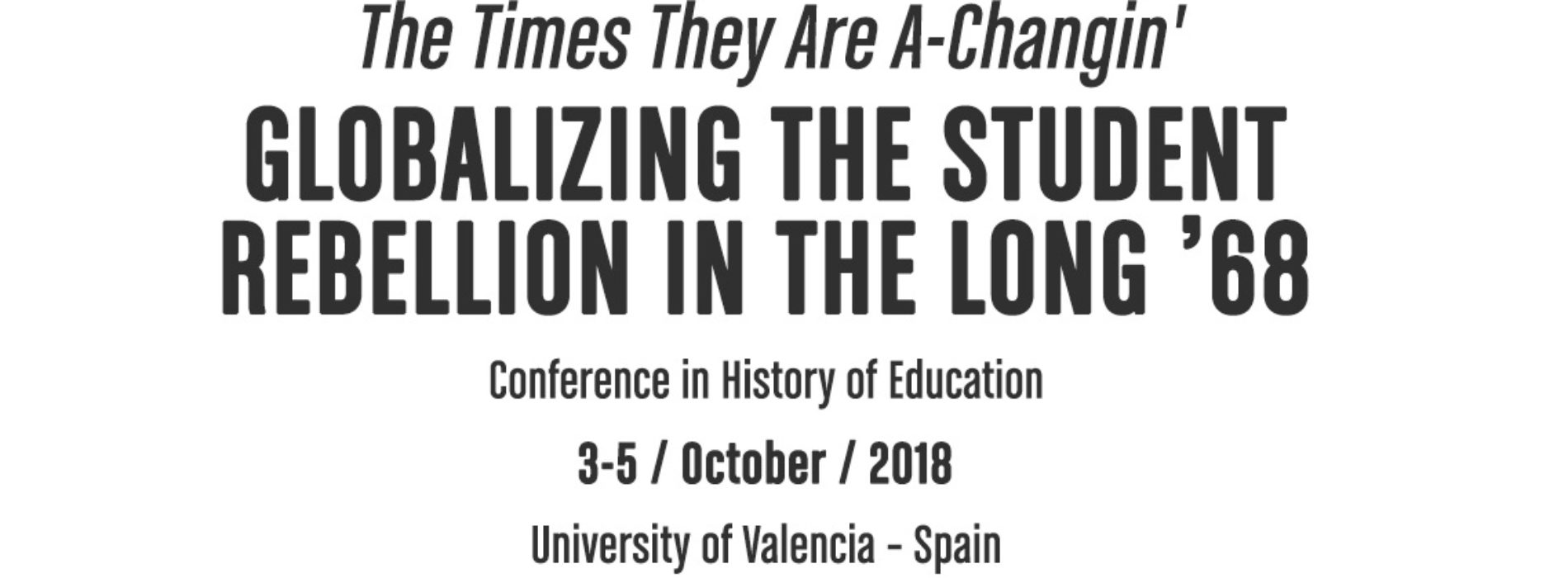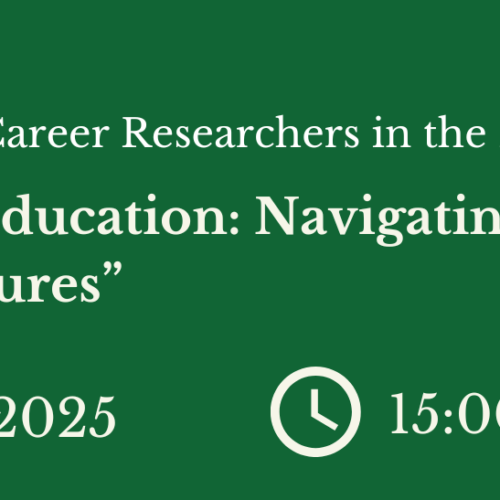CFP: Globalizing the student rebellion in the long ’68. Deadline Apr. 4 2018
The Times They Are A-Changin’
GLOBALIZING THE STUDENT REBELLION IN THE LONG ’68
Conference in History of Education
October 3-5, 2018
University of Valencia – Spain
Call for Proposals
Admitted languages: Spanish, Italian, English, Portuguese, French
The university student movements that grew up around the world during 1968 were a significant expression of the wave of new social movements. They were also a genuine manifestation of an emergent social and cultural category: young people in action. The range of experiences of these movements was broad; they were influenced by the cultural features, political systems, Cold War guidelines, socioeconomic conjunctures and various idiosyncrasies within the regions where they developed. Furthermore, within these regions they differed from university to university, depending on the specific academic cultures, municipal traditions and balance of social forces.
The objective of this Symposium is to create a space for reflection and exchange of ideas between researchers from different backgrounds and historiographical currents on young university students in action during the ‘long ’68’. This expression is intended to emphasize the «expansive» nature of the «global moment» which that year represented. Indeed, from the very beginning of ’68, there were numerous and intense demonstrations of the will of students and young people around the world, some of them especially memorable. Take, for example, the Paseata dos Cem Mil, the Prague Spring, the Tlatelolco massacre and the May unrest in Paris. These would rapidly become bedrocks of the youthful revolutionary mythology, and as such be echoed in the events of later decades. However, the origins of this wave of youthful rebellion can be traced back to the Great Cultural Proletarian Revolution in mid-’66, and the tide of defiance spilled out into ’69, which saw particularly significant episodes of youth and university activity, especially in Japan and the USA. Indeed, the emblem of this time was the Woodstock music festival, which would quickly become established in the social imaginary of youth as a benchmark of counter-culture, and its ripples would spread across the ‘70s and early ‘80s.
Within the general theme of the Symposium, among the many topics covered, special emphasis will be placed on the following:
- The international synergies, influences, exchanges and interconnections between separate university student movements.
- The political and pedagogical backgrounds of the motivations, claims and aspirations of the students involved.
- The capacity for social mobilisation, the integration of alternative political players, and negotiation with the Institutions.
- The philosophical component and the sociological background of «young people in action».
- The roles of women as protagonists in the ’68.
- Youth cultures and counter-cultures.
- Representations of student mobilisations in social imaginaries.
- Revolutionary mythology.
- The educational dimension of university youth in action.
- The discourses and experiences of social, cultural and political development in community environments.
- The impact and/or traces of the long ’68 that are still discernable today.
This Symposium also has the aim of contributing to the current debate on the situation of scientific communication in the area of History of Education. To this end, the 2nd Workshop of Journals of History of Education will be held to address such issues.
Further information on the forms of participation, key dates, registration, publication of contributions, and other regulations is available here.
See also: www.espaciotiempoyeducacion.com
About author
You might also like
Jornadas “Memorias, Legados, Disputas y Prospectivas en Historia de la Educación. A 100 Años de la Reforma Universitaria”
Jornadas “Memorias, Legados, Disputas y Prospectivas en Historia de la Educación. A 100 Años de la Reforma Universitaria” Córdoba, 17 y 18 de Septiembre de 2018 Sociedad Argentina de
Call for Papers — History of Oxford Colleges 15 November 2014 (Oxford, UK)
The History of Oxford Colleges Conference (HOCC) is a conference dedicated to the historical study of the colleges of Oxford University. The conference gives historians, archivists and antiquaries (as well
CfP: XIV Congresso Iberoamericano de História da Educação | CIHELA 2021 Lisboa
The Iberoamerican Congress on the History of Education (CIHELA), which has moved from 2020 to 2021, will take place from 20 – 23 July 2021 at the University of Lisbon,



